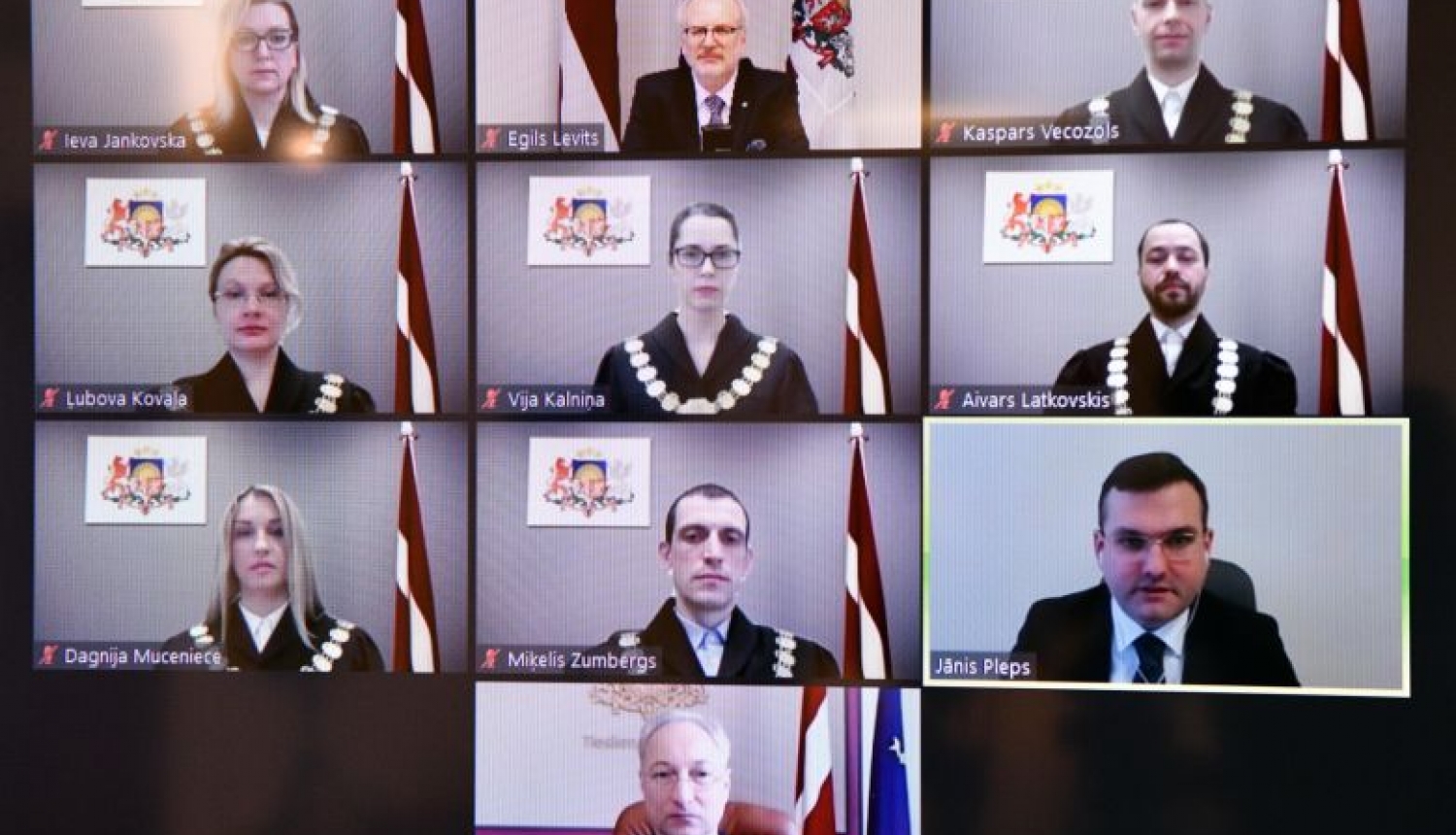On 29 March, President of Latvia Egils Levits conducted an online swearing in of Economic Crimes Court judges Ieva Jankovska, Vija Kalniņa, Ļubova Kovaļa, Aivars Latkovskis, Dagnija Muceniece, Kaspars Vecozols un Miķelis Zumbergs during a ceremony hosted from the Riga Castle.
President Egils Levits’ opening remarks:
‘Dear justices, colleagues,
My 25-year experience as a judge has taught me that there may be specialized courts but the standards for judges will always be the same. They need to have the same skills and follow the same code of ethics wherever they work in the judicial system. And I am deeply honoured to be the first one to address you by this noble name, justice. Court is the denomination of the building, the staff, specific equipment, but the core element of courts has always been the judges, of course. A couple of minutes ago you were sworn in, you made an oath, and Economic Crimes Court began to work.
You are now the judges of the youngest court in Latvia. Legislators establish new specialized courts very seldom. Our judicial system is comprised of general jurisdiction courts. In 2004, we created administrative courts, and now, in 2021, were adding the Economic Crimes Court. Specialized courts, which operate outside general system, are created by legislature for historic, practical and objective reasons. Quite often such courts are created because the public and legislators have objections towards how courts work and decide to create specialized courts to address a particular problem. Society and legal professionals are now looking at you. That is a huge responsibility, and you cannot let them down. You have gone through a very careful and complicated selection. We can be confident that you are the best of the best. And I have no doubt you will live up to these expectations.
All courts are expected to make the rule of law stronger. But Economic Crimes Court has been specifically designated to promote the rule of law in an area Latvia has struggled with in the past. I am, of course, talking about prosecution of economic crime, both the civil cases and criminal offences. I suppose you are well-qualified to handle such cases with your extensive expertise. It is, however, the first time you will be wearing a robe, but every judge does it for the first time one day. As I already said, most of you have track record that fits right into the new court. You come from various backgrounds: prosecution, courts, Ministry of Justice, Financial and Capital Markets Commission and so on. But I am happy to also see that many of you have scientific experience, a quality essential for a judge. Science complements law, helping judges ensure justice.
Our judicial system suffered a great loss this month. But there are two very valuable principles that every judge should know according to the outstanding professor Kalvis Torgāns. Kalvis Torgāns was not only a professor, but he was also a practicing judge. He was a judge emeritus. So, first of all, judge’s heart should always tell them what is right – right for Latvia. In other words, you should always be guided by or aim for the best interests of Latvia. Your task is to make Latvian State better. Help it function properly. Secondly, never agree to shady deals and have zero tolerance towards all embezzlers, crooks and fraudsters who want to abuse Latvia’s judicial system.
You were just sworn in, gave your oath, which generally means you have subscribed to very precise description and standards of job, both in terms of professional and ethical standards for judges. One of these standards is truth-seeking. When disputes or differences between parties arise, judge is the one who handles the proceedings and tries to crack the truth, find justice, follows the procedural and substantive law to deliver as honest verdict as possible. However, one thing is certain: all laws should be interpreted in a way that contributes to more justice. A purely formal approach to application of laws, which sometimes does happen, should be unacceptable. Formalistic application of law is against the law. Proper regard should always be given to circumstances and judges should be able to explain what law intends to do and what it has established.
Dear colleagues, it really warms my heart to see this new court joining our country’s judicial family. Best of luck to you!’




